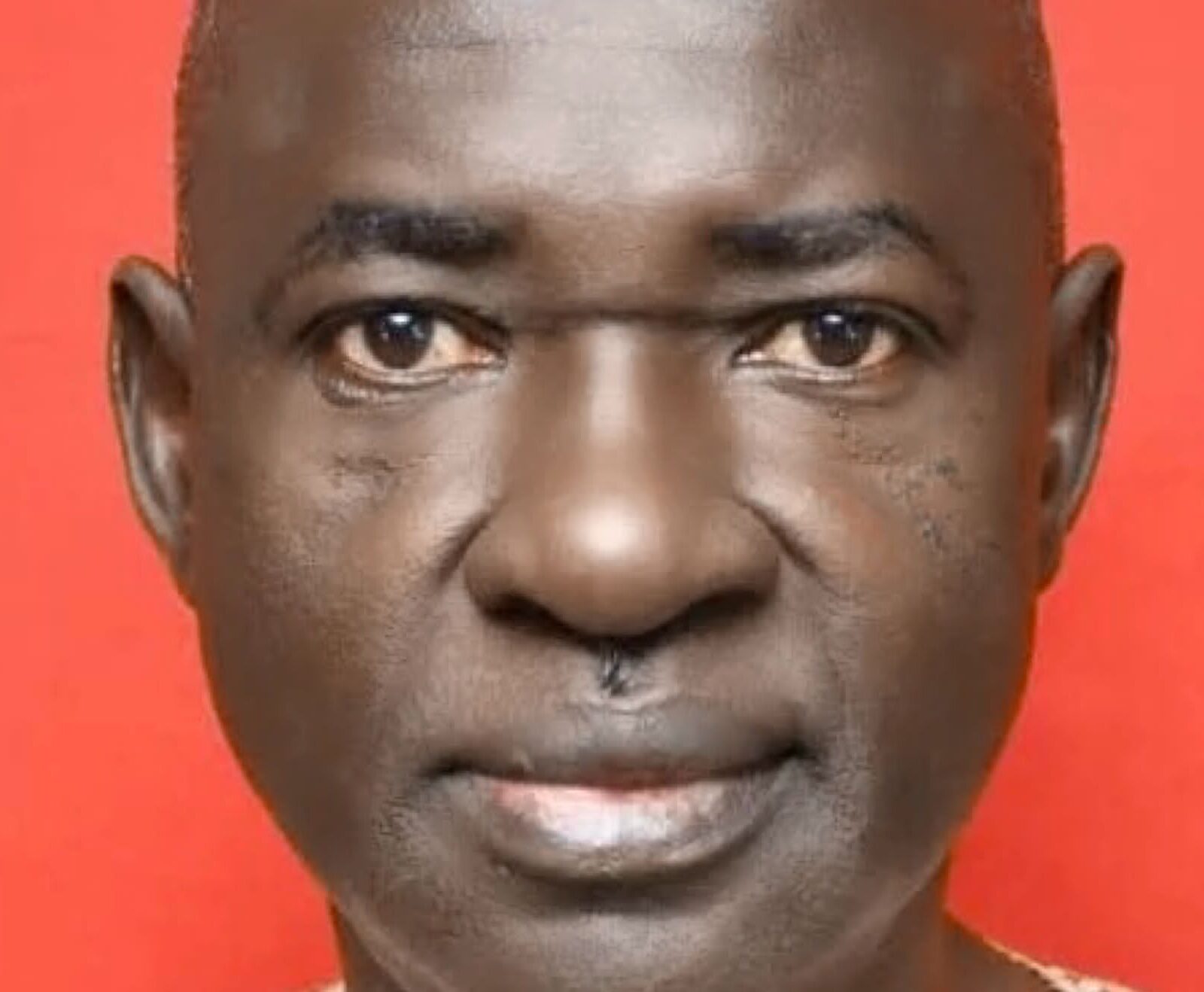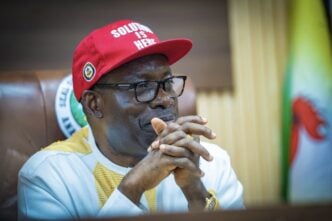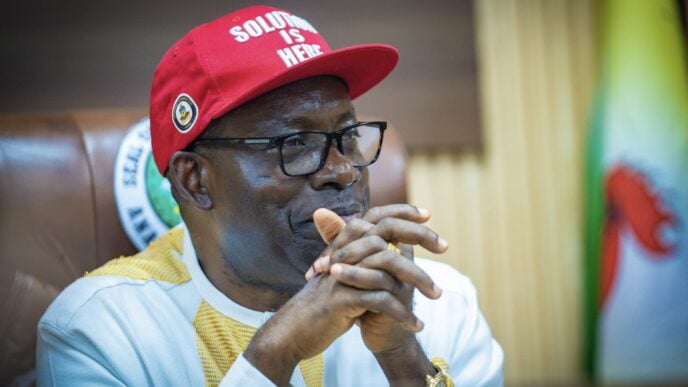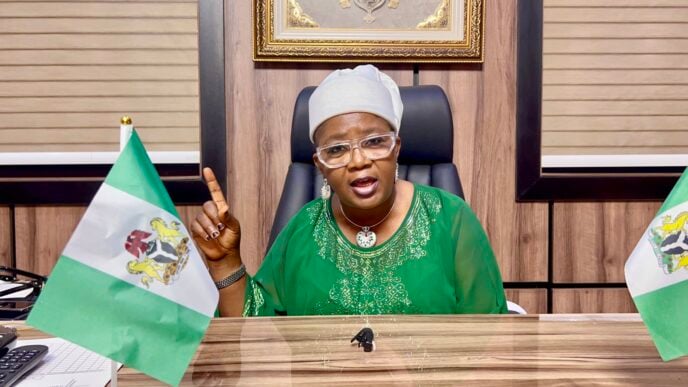I tell my students from time to time, especially the undergraduates, since, more than their graduate counterparts, they are more prone to unprocessed, fanciful and innocent dreams that, no matter the aspiration of many Nigerians to travel abroad in search of the good life, majority of them will live and die here. I may not have the data but my gut feeling tells me it’s no exaggeration. Blunt, brutal or even joy-killing, maybe. But the stark reality is that many countries are becoming stingier with their visas for various reasons. How many people can they absorb, anyway? How much longer will they throw open their borders to the citizens of a country that keeps descending rapidly from being a land of promise to a basket profile, in a clear demonstration of self-sabotage?
My overriding motivation for such admonitions is to strongly encourage my listeners to look inwards, think outside the box and convince them to invest some love in the nation of their forefathers – against the screaming and seemingly justifiable grounds to embrace the contrary. Why not put in your best into a place where you’re a first-class citizen with all the positive potentials despite its apparent shortcomings? Merit and hard work are not rewarded here appropriately, right? I sincerely hope that at some point a catalyst will emerge to inject a fresh affection for and pride in Nigeria into the largely weary and disillusioned citizenry.
That wish appears more and more unlikely soon, unfortunately. And any talk of nationalism and patriotism at the moment can easily hit a stonewall. The task of persuading those who have already given up on the country to do a reversal isn’t going to be cool. Too many unpalatable things keep occurring in quick succession to reinforce the resentment, cynicism and bitterness held by a sizable number of the people, many of whom had once loved the country dearly above others.
Take the death of Arise News anchor and producer, Somtochukwu Maduagwu, last Monday in Abuja, for instance. The reports of her excruciating and premature exit from this world highlight some of our most pressing national emergencies and embarrassments: significantly disabled security machineries and a jaundiced health system. To think that only some weeks back, the late lawyer and broadcaster had posted on social media a prayer that Nigeria should not happen to her and her loved ones. The eerie emotions which have come with that further complicate any attempts to discover a new, uplifting meaning in living in or being a Nigerian. But, finding ways of developing and nurturing at least a sense of responsibility towards the country is both moral and civic.
Advertisement
Doing that would mean deliberate efforts to reposition our minds and attitudes. Setting out on that journey would equally require a decision to resist the temptation to always lump the political leaders with the country itself and, as is often the case, visit the sins of the former on the latter. Until we separate the ruling elite with the propensity of many of its members for anti-progress from our common heritage, achieving restoration and true greatness will be a mirage. It’s sad that the enthusiasm that ushered in the current democratic dispensation has continued to wane. Since 1999, even presidential speeches – elevated, persuasive and reassuring in other climes – have been progressively weightier on rhetoric than material delivery.
The one given by President Bola Tinubu on Wednesday to commemorate the country’s 65th independence anniversary followed that trend. It reads in part: “Our administration inherited a near-collapsed economy caused by decades of fiscal policy distortions and misalignment that had impaired real growth. As a new administration, we faced a simple choice: continue business as usual and watch our nation drift, or embark on a courageous, fundamental reform path. We chose the path of reform. We chose the path of tomorrow over the comfort of today. Less than three years later, the seeds of those difficult but necessary decisions are bearing fruit…
“Our administration is setting things right. I am pleased to report that we have finally turned the corner. The worst is over, I say. Yesterday’s pains are giving way to relief. I salute your endurance, support, and understanding. I will continue to work for you and justify the confidence you reposed in me to steer the ship of our nation to a safe harbour…. The alternative of allowing our country to descend into economic chaos or bankruptcy was not an option. Our macro-economic progress has proven that our sacrifices have not been in vain. Together, we are laying a new foundation cast in concrete, not on quicksand.
Advertisement
“The accurate measure of our success will not be limited to economic statistics alone, but rather in the food on our families’ tables, the quality of education our children receive, the electricity in our homes, and the security in our communities….” Hmmm. Really? That broadcast was laced with figures meant to advertise what he hoped to be his government’s drive towards tangible achievements. Most of the declared victories, however, are simply tales to his 130 million multidimensionally poor fellow citizens. To them, fiscal and monetary policy strides in whatever form are mere statistics employed to mesmerise. Reactions to that address have been overwhelmingly unflattering.
It’s clear that the Nigerian people are so sufficiently disappointed in their leaders to take their words seriously. But the nation is in dire need of inspired passion and devotion. President Tinubu didn’t do the right thing by replacing the national anthem he met in office with the old one. The action was engineered by nostalgia or other motives. The ditched one, “Arise, O Compatriots”, has enough justification for succeeding the one the president railroaded back into reckoning through this pliant National Assembly. The returnee anthem will surely be laid to rest yet again. But hailing or genuinely cheering up the fatherland is one duty that shouldn’t be brushed aside.
For, though recklessly and roundly raped by many of the persons charged with protecting and nurturing it, Nigeria has remained resilient and alluring. The concern is not actually about people of my own generation and older ones who witnessed when the country worked in many respects but those who were born into this diminished era. Many of them – Gen Z and others – see the nation as a scam. They, in particular, must rise above any rationale for negativity in defence of their endangered present and future.
Ekpe, PhD, is a member of THISDAY editorial board.
Advertisement
Views expressed by contributors are strictly personal and not of TheCable.














